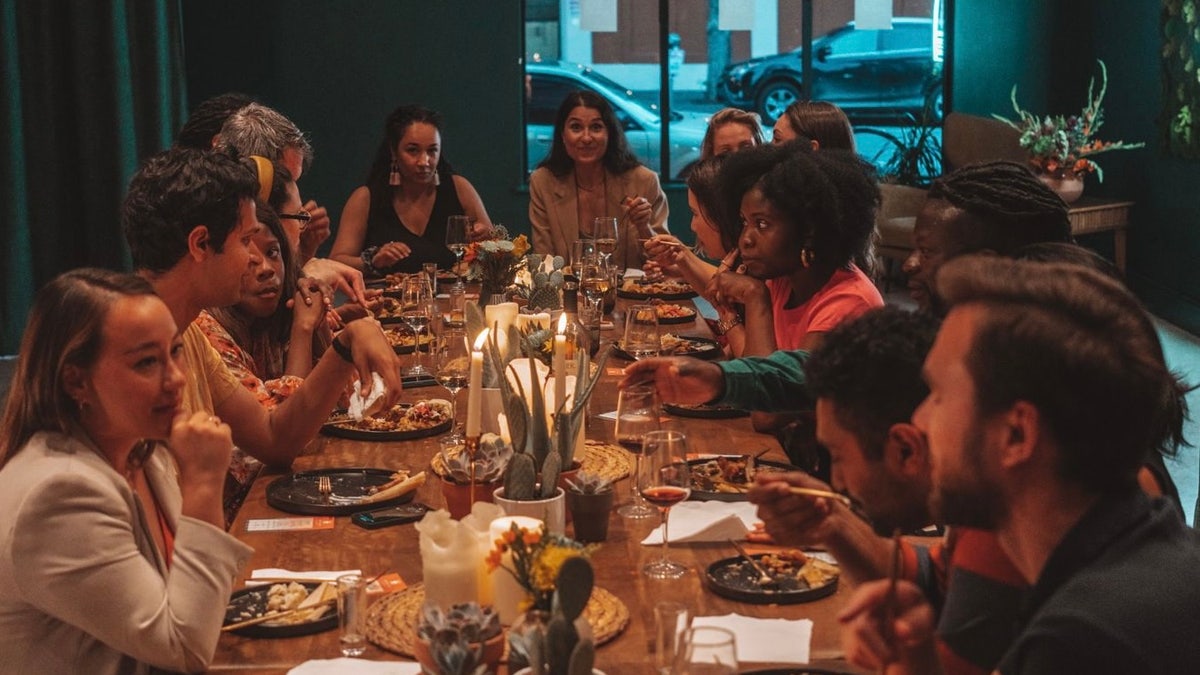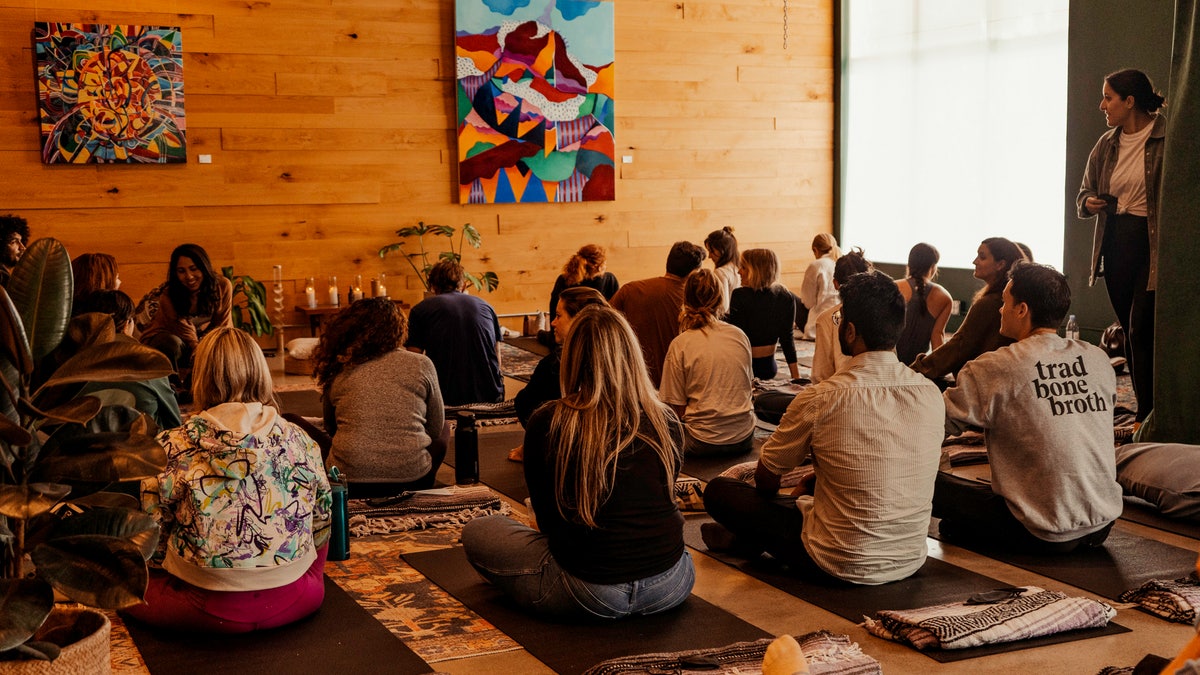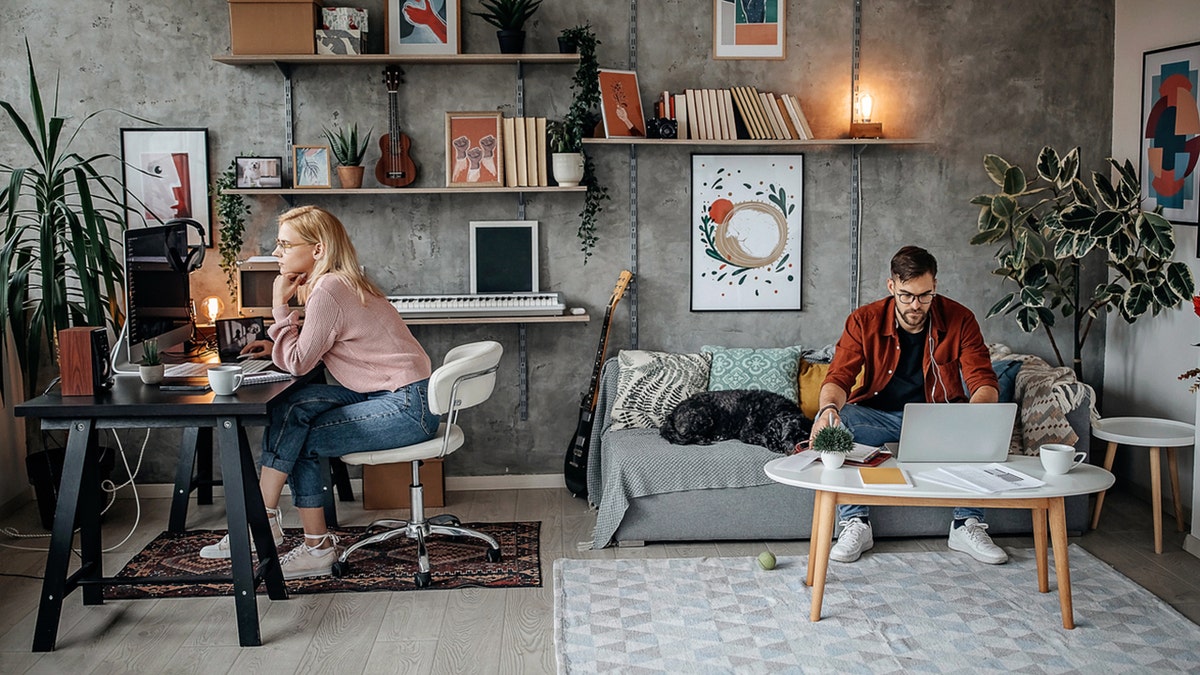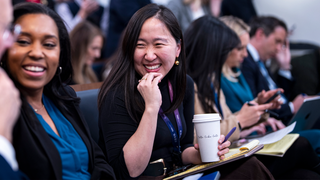Groundfloor CEO on how his company helps people dealing with workplace isolation
In an era defined by remote work, a company called Groundfloor has sprung up in San Francisco that's helping professionals who feel isolated find new friendships. CEO Jamie Snedden discusses his work with Fox News Digital.
Modern Americans were already dealing with a loneliness crisis even before the COVID-19 pandemic ushered in a new era of remote work that forced adults apart more than ever.
One in five Americans said they were lonely or socially isolated, according to a 2018 study by the Kaiser Family Foundation. In a survey conducted in 2021, more than a year in to the pandemic, approximately 12% of Americans said they had no close friends, compared to 3% of Americans in 1990.
An entrepreneur has created an adult social club of sorts for this age that he hopes will combat what's been referred to as a "friendship recession." Groundfloor CEO Jamie Snedden opened his first space last year in San Francisco after realizing in 2021 that he'd been working from home without leaving for five straight days, and going to a coffee shop like Starbucks didn't make it any better.
"It was worse because no one wants to talk to you there," he told Fox News Digital. "It's just not a good place to make friends."

A group of Groundfloor members gather for dinner.
He thought he would find other like-minded professionals who also craved that human connection you can't get from a Zoom call, and now the group has hundreds of members, with plans to open additional spaces in Los Angeles, Oakland and San Rafael.
"Our mission is to help solve isolation for remote workers by putting these beautiful friendship-first spaces close to where people live in residential neighborhoods," Snedden said.
He explained that most modern friendships are cultivated in physical spaces where people interact, and the office used to be a prime example of that. Now, especially for younger people who haven't started families and have demanding jobs, they feel more isolated, and Snedden said he examined colleges to see why they were such "great friendship generators."

A Groundfloor club gathering in San Francisco. (Groundfloor)
The startup has leased spaces in residential neighborhoods and redesigned them to have wellness and fitness areas, kitchen and bar areas, and created community gathering areas specifically geared for laying the foundation for personal friendships.
Members are paired up with others who could be personally compatible, and there are member-led clubs within the Groundfloor umbrella for members to join as well, like chess and sailing clubs. The Groundfloor spaces themselves are member-led as well.
Snedden said roughly 70 percent of Americans recently identified as feeling isolated in some form, and the majority of meaningful adult friendships before COVID hit were started in an office.
"The numbers are quite startling," he said. "People are starting to think longer term about where are the social connections coming from in my life? Where's the community? Where's the friendship? Because it's certainly not coming from sitting at home talking to people that you already know. So I think people all over the country are reassessing and taking a longer term view. What's a healthy routine in life?"

Young couple working from their home office during pandemic (iStock)
He said psychologists have even referred clients to his company to deal with feelings of loneliness. His background is in architecture, which demonstrated to him the effect physical space can have on people.
That said, not anyone necessarily can join. Prospective members apply and go through a screening process, but its website states you'll be told why if you're not a "fit."
"Do they really want to build community?" Snedden says is one of the questions they try to answer in determining if they want to allow a new member.
He hopes Groundfloor can spread around the country, but in the meantime, he advises anyone dealing with workplace isolation to join communities around them, not simply go to bars or coffee shops.
CLICK HERE TO GET THE FOX NEWS APP
"What you're actually missing is the true connection, the conversation, the feeling of camaraderie with another human being," he said. "Sort of a surface level thing of just being around people helps, but it doesn't actually get at the root cause, which is what we've learned."










































